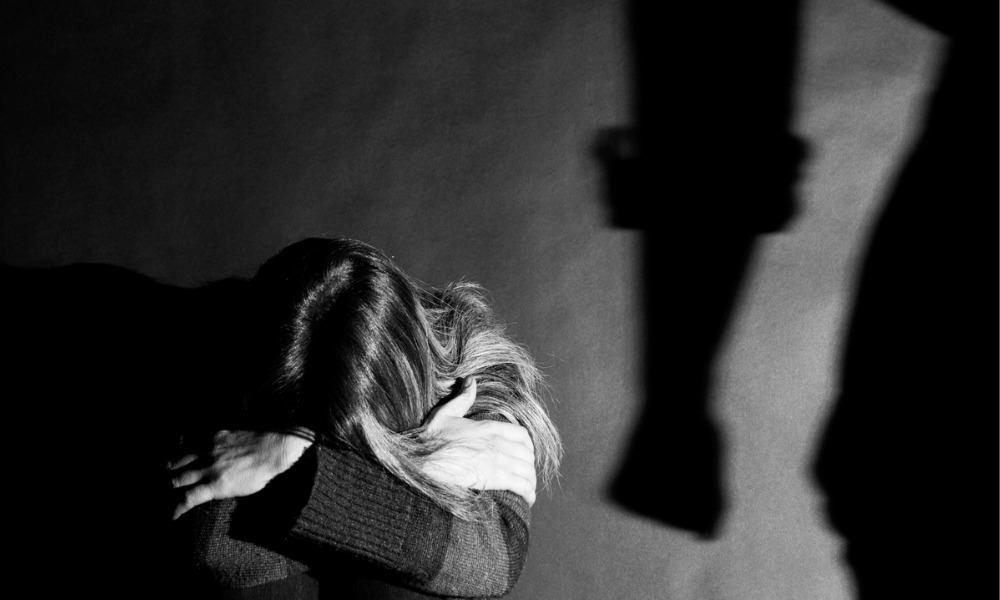
New Zealand has one of the highest rates of domestic violence in the developed world

Recognising that domestic violence severely impacts both the individual’s personal and professional life, one organisation is going above and beyond to protect their workers.
AA Insurance (AAI) has created a Support Network specifically to help staff who have been affected by violence in the home.
The goal was to create a non-judgmental sanctuary away from abuse, where people feel safe to speak-up and receive the required support they need.
The initiative came about in November 2019, after AAI acknowledged that the problem is one of the country’s most serious social issues.
New Zealand has one of the highest rates of sexual and domestic violence in the developed world, with police responding to a family violence incident every four minutes.
Family violence is estimated to cost the country between NZ$4.1bn and $7bn a year, prompting the government to announce a record investment of more than NZ$200m in this year’s budget.
Nikki Howell, head of people & capability, AAI told HRD that the company has a very diverse workforce of 760 people and it that is “imperative that everyone can be themselves and bring their whole self to work”.
AAI had previously established a Domestic Violence-Free Policy, and received accreditation from Shine, a national domestic-abuse charity. As part of that accreditation, most of its leaders were trained to support staff facing domestic violence or abuse.
However, Howell said that the company wanted to do more.
AAI came to the conclusion that some staff might not feel comfortable approaching their leader, and saw the creation of a Support Network of volunteers from among the staff as an obvious answer.
And the support from employees was swift, with the workforce wholeheartedly embracing the initiative and 6% of staff offering to volunteer.
“I am so proud with the sheer number of staff who volunteered to help their peers, as well as the people who are reaching out for someone to talk to and ask for help, which they may not have done otherwise,” Howell told HRD.
“It means this programme is credible and has gained in momentum since beginning a year ago.
“During these overwhelming times, this programme has become even more important.”
Read more: NZ introduces ‘world first’ paid domestic violence leave
The volunteers have also been given an intensive two and a half days of training with Shine and have undertaken the St John’s Mental Health First Aid course, equipping them with skills to recognise mental distress and the confidence to provide initial help and guidance.
They can be contacted by their peers to listen, provide various kinds of guidance, support requests for leave or security provision, or put people in touch with professionals for additional support.
Moreover, the volunteers represent each AAI site geographically, hold varying roles, and are of different genders, sexual orientation and ethnicity.
“Diversity and inclusion are so important at AA Insurance; it’s who we are,” said Howell.
“We recently implemented this year’s Diversity and Inclusion survey - in its second year - with focus groups now working on actions from the feedback we received.
“COVID-19 got in the way of this a bit, but our people are happy to tell it like it is. In fact, it’s one of our values - and they can rightly expect something to happen as a result.”
The Support Network has already helped more than 4% of AAI’s staff, over a period that included the extra stress of Christmas and the lockdown. Support for staff seeking help has included flexible working arrangements and provision of domestic leave.
Absenteeism is also down, and widespread support for the company’s focus on wellbeing was evident in its 2020 staff-engagement survey. The latter was anecdotally attributed to the Support Network initiative.
Read more: Tips for dealing with domestic violence
Howell told HRD that creating a successful Support Network requires active backing from the top, but you also need to take your people on the journey.
“They need to know the ‘why’ as well as ‘how’ it could affect them,” said Howell.
“This was something that resonated with our people.”